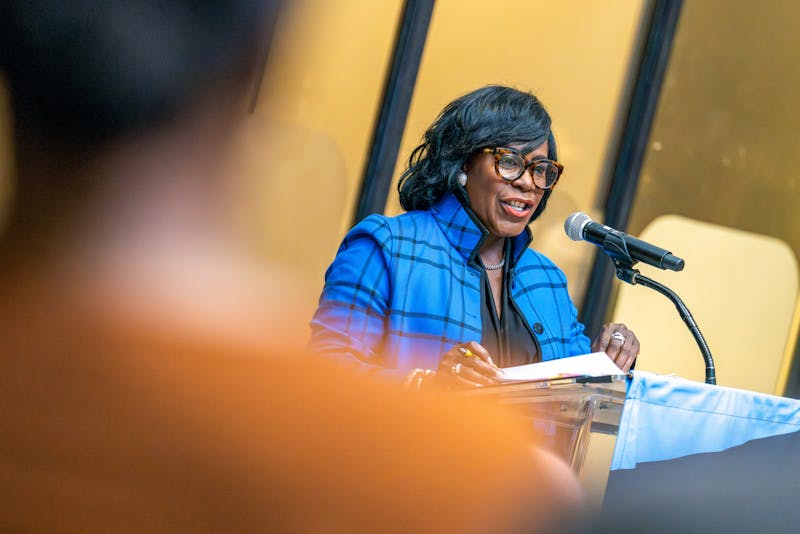
One winner of last year’s President’s Engagement Prize has shifted the focus of their project from financial literacy to engaging with West Philadelphia youth about how to combat community violence.
Collective Climb, which was founded by 2020 College graduate Hyungtae Kim, 2020 Wharton graduate Kwaku Owusu, and 2020 College graduate Mckayla Warwick, was originally awarded the prize to fight poverty by utilizing Philadelphia’s community assets. They decided to switch their focus at the end of summer 2020 due to a realization that people in the communities they hoped to serve were no longer talking about debt, but rather about community violence.The new project aims to combat anti-Black racism by training youth to become restorative justice practitioners and working with Penn’s Division of Public Safety to utilize diversion techniques as an alternative to arrests.
The President’s Engagement Prize recognizes projects that promote community involvement on local, national, or global scales and awards teams up to $100,00 to implement projects in the years after graduation.
The founders said that when Collective Climb met with West Philadelphia youth in June 2020, they discussed both economics and police brutality and incarceration. The group decided that the latter was a more urgent conversation and was more directly related to the ultimate goal of Collective Climb: liberation.
They opted to continue working with West Philadelphia youth, training them to become restorative justice practitioners by teaching them the difference between a punitive and restorative approach.
Collective Climb is focusing on both proactive and reactive measures to meaningfully address community violence. The proactive measures include partnering with local youth organizations to engage in "Collective Kickbacks," which are experimental sessions designed to help process current events and past experiences through an unfiltered perspective.
For the reactive part of its approach, Collective Climb is working with DPS to create an intervention point when the police arrive on the scene in schools in an attempt to subvert the school-to-prison pipeline in underserved Black communities, Warwick said.
Collective Climb also introduced a Restorative Community Project, which is a paid six-month fellowship for young leaders from marginalized communities to conduct research, receive training to become restorative circle-keepers, and build original lessons to transfer their knowledge to the next generation of Restorative Community Project practitioners.
The program will ground West Philadelphia youth in Black feminist methodologies and teach research and analysis skills, restorative justice training, and conflict resolution. Each teenage participant is given a stipend of $1,200 and will help train the next cohort of youth.
Graduates from the Restorative Community Project can also join the Youth Advisory Board, which is an intergenerational assembly that takes on a paid governance role within Collective Climb to champion the future direction of its core programming.
The founders said that the switch from focusing on financial literacy to restorative justice has been incredibly rewarding for the group.
“Our goal is to support and empower youth, while also amplifying their unique insights,” Owusu said.
The Daily Pennsylvanian is an independent, student-run newspaper. Please consider making a donation to support the coverage that shapes the University. Your generosity ensures a future of strong journalism at Penn.
Donate






